14. Audrey Hepburn in “Always”

An enthusiast may well say that it was fitting for Audrey Hepburn’s final role to be playing the part of an angel. Indeed, Steven Spielberg, known stylistically for a kind of magic optimism, was an apt director for the task also. Playing Hap, an angel guiding Richard Dreyfuss’ aviator Pete Sandich through the realities of his particular existential situation, she is wise, witty, and comforting. Of course, as is always the case with the Hepburn, the wholesome front comes with no small amount of refreshing irreverence.
Pete is a pilot who has died in a crash, and must learn to live with exploring the world in which he once belonged in a now purgatorial state. Central to this tragedy is the loss suffered as a result of not being able to reach the woman he has left behind, Dorinda (Holly Hunter). His desperate attempts in vain to communicate with her are the essence of the film’s dilemma. This is where Audrey comes in.
As Pete’s only confidant, she is his shepherd through this darkness. Keeping him company, instructing, telling it like it is, and even making him laugh. It is a role that calls for a sweetness within anchored a bedrock of wisdom. The film may sound like typical Spielberg fare, and according to many critics it is, but Hepburn fans can take solace in the fact that her final role was one that called upon all of her finest assets as a performer.
13. Robert De Niro in “Silver Linings Playbook”
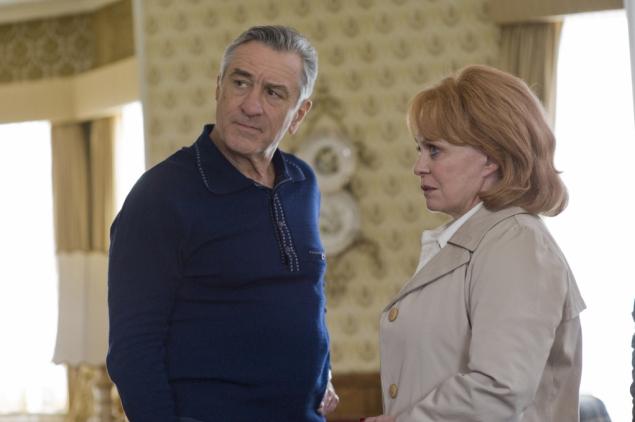
Far be it for anybody to suggest that Robert DeNiro’s talents have declined in recent years, but his ability to choose his projects has visibly waned with the continued onset of maturity. More often than not, in recent times, DeNiro’s fans have been forced to watch him give exceptional performances, but in largely mediocre films.
As such, his recent ongoing collaboration with director David O Russell has truly been a breath of fresh air, as we can at least occasionally witness DeNiro’s still staunch skillset applied to decent material.
Here, we see Bobby play an understated, yet pertinent supporting character. The role of the protagonist Pat’s father, Pat Snr, maybe appear a humble one for a screen icon; but the character is a man of quiet tragedy. A compulsive gambler in total denial, and a man clearly suffering a moderate dose of his son’s neurotic compulsions, Pat Snr is both comic relief and subtle tragedy. DeNiro, of course, plays him enough frenetic madness to achieve both comedy and tragedy in abundance.
His monologue about the legacy of sons never listening to their towards the climax of the film is delivered with aplomb; a late career benchmark.
12. Warren Beatty in “Bulworth”

As absurd a performance as is cited in this list.
Warren Beatty, acting only sporadically at this stage in his career, comes out swinging with an ideological rollercoaster ride of a comedy. At turns silly, frustrating, wild, and even amateurish, there is undeniable beauty and brilliance to Bulworth. The film leaves virtually no stone unturned in lampooning the American political system. Yet, it is an actor’s movie and, more specifically, it is Beatty’s movie.
The film centers around Senator Jay Bulworth, an uninspired US Senator running for re-election to the Senate in the general election year of 1996. Out of ideas, and constantly having to change his image, he begins the movie as a recluse in the halls of Washington, lethargic and depressed, and even hiring a hitman to assassinate him without so much as batting an eyelid.
However, a trip to an inner city nightclub, and a new budding romance with a mysterious young black woman Nina (Halle Berry), Bulworth becomes reborn as an anti-institution man of the people. And, by that, we mean he raps- frequently.
Beatty winds up dressed for the ghetto, swearing, rapping, drinking, and even confronting cops. He gets cut off for being all too real in a debate, and generally hits all the pertinent notes regarding Washington’s institutional corruption. What makes it all compelling is Beatty, who has always made left-wing political movies, is having so much fun doing so. As writer/director/actor, this is clearly a passion project for him, and he relishes every moment in a way that radiates unto the viewer.
Love it or hate it, there is undeniable guile behind the madness at play in Beatty’s performance.
11. Matthew McConaughey in “Killer Joe”
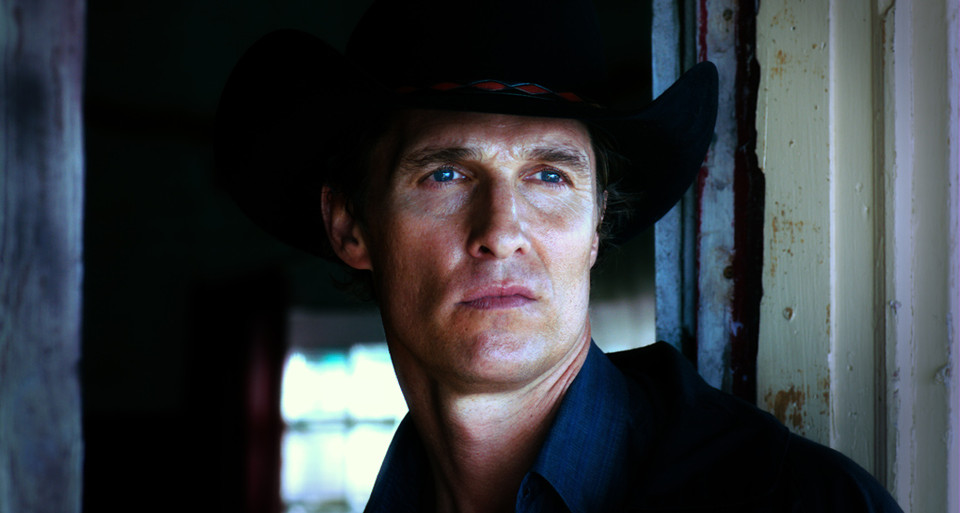
How does a typecast rom-com stud make the delicate transition to pop culture acceptance, and ascend to the heights of artistic distinction? It is no easy task. It is a difficult feat indeed.
Well, for starters, Matthew McConnaughey accepted a role which called for him to romance a 14 year old girl, commit onscreen murder, and simulate oral sex with a KFC chicken wing.
Yes, indeed. The path to glory for McConnaughey began with a thoroughly indulgent collaboration with veteran director William Friedkin. Friedkin has never shied away from raucous material and this film is perhaps the most sordid of his career. The plot is ludicrous yet airtight- when a trailer park family offer their 14 year old daughter to a hitman as payment for a desired hit on the maternal family figure, it soon transpires that said hitman (McConnaughey) is playing them all for fools.
With a script that glories the absurd, and a role that calls for suave and maniacal in equal proportions, McConaughey relishes every moment of this one. His dry delivering skirting some of the more outrageous dialogue easily, making it witty rather than overtly crude. Moreover, amidst the chaos, he even manages to foster a bizarre onscreen chemistry with Juno Temple, the reborn star proves he can have it all.
10. Sean Connery in “The Untouchables”
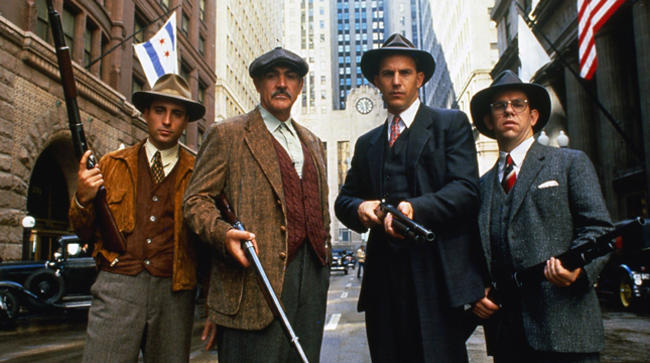
Completed with Oscar statuette, The Untouchables marked a true reinvigoration of the Sean Connery mystique at the hands of maverick New Hollywood director Brian De Palma. De Palma himself represented the rejuvenation of American cinema and, as Quentin Tarantino would go on to do, resurrected the waning career of the ageing Connery with a new set of ideals.
As such, it is fitting that both inside and outside of the plot Connery is an elder statesman. In the plot, his character Jim Malone is the wily veteran in a rag-tag crew of irrepressible cops. A voice of world weary wisdom amongst much youthful zeal. This is fitting, as the ageing Connery found himself, as such, acting against many of the emerging Hollywood talents of the time- Kevin Costner, Andy Garcia, and Patricia Clarkson amongst the most notable.
Perhaps the genius of Connery’s portrayal of malone is in what is not overtly expressed. Here is a hopeless cop, in his own words, “still walking the beat at my age”. His lack of a promotion or acquiry of lifestyle that could benefit him has come as a result of refusing to succumb to the corruption all around him.
Yet, there is little self-pity or melodrama, only the hardened resolve of a wary man. Poignancy can be found in the understatement. Connery was an apt choice for the role, one which revitalised his career for over a decade to follow.
9. Lillian Gish in “The Night of the Hunter”
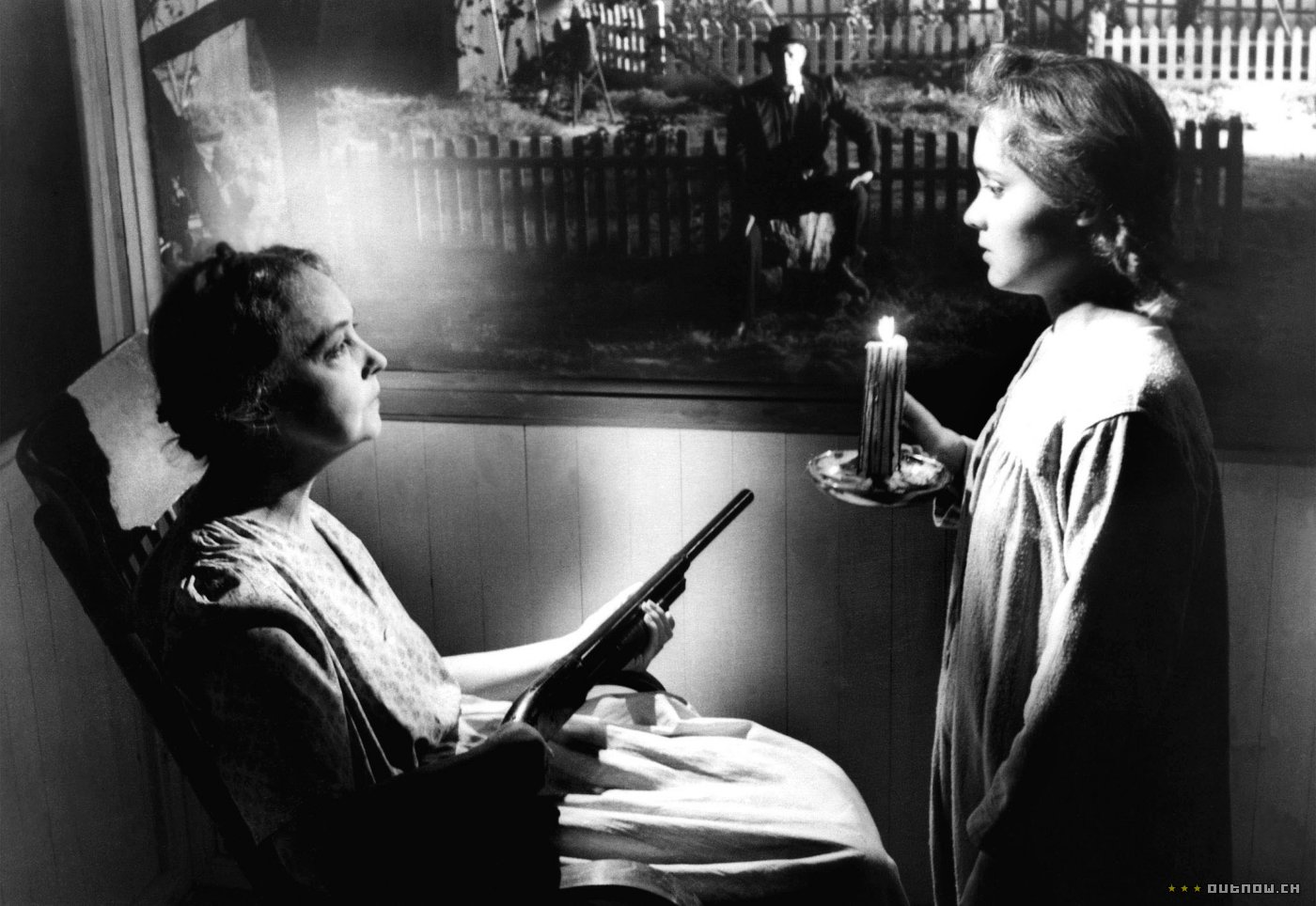
Gish is still the definitive Hollywood veteran. Appearing in the early silent films of D.W. Griffith, Gish starred in films which literally helped spawn the cinematic craft we take for granted today. She continued to work all of her life, appearing in her last film in 1987, at the astonishing age of 94; almost a century after her initial rise to stardom.
It is a career span that is unlikely to be seen again, which ultimately serves to further solidify the legacy of Night of the Hunter. Because, without Night of the Hunter, the latter part of Gish’s staggering career may not have happened.
Gish’s popularity was waning somewhat come the middle 1950s. An ageing woman, she began to find that Hollywood is often tragically cruel to ageing actresses. Yet, with the maternal role of Rachel Cooper, a kind stranger who protects two innocent children from the clutches of a madman Harry Powell (Robert Mitchum), Gish crafted herself a new image, that of a Grandmotherly elder stateswoman in American cinema.
With a late first appearance in the film, Gish’s warmth and charisma elevates what had thus far been a very dark tone. She makes Rachel Cooper warm and wholesome, but not above rifle wielding intensity should Powell make his advances on the children in possession of his stolen cash.
Her final monologue, addressing the audience directly, is confirmation of a positive resolution for both the film and a career. We, like the children of the narrative, are safe in Lillian Gish’s hands.
8. Ingrid Bergman in “Autumn Sonata”
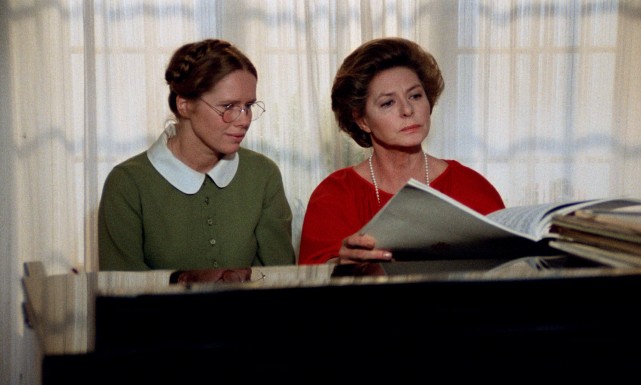
Ingrid Bergman has been such a darling of the Golden Age of the American silver screen that many often forget that she is, in fact, Swedish by birth. As such, for decades, a collaboration was anticipated between Ingrid and the Sweden’s other mighty cinematic Bergman- master auteur Ingmar Bergman. The collaboration finally materialised towards the end of both legend’s perspective careers, but was not at all dampened by this fact; it was emboldened.
Playing Charlotte, a toxic matriarch who has abandoned her daughters Eva and Helena, the latter of which is dying and severely disabled, Bergman is startlingly chilling. In this, Bergman effortlessly finds a break from the archetype of virtue which she often represented in her Hollywood career. Charlotte visits her daughters for a chaotic weekend, in which many grievances, past and present, are aired. It is an actor’s movie with a hypnotic auteurial eye, quintessential Bergman fare.
Bergman is given room to breath in her performance, and is sensational.